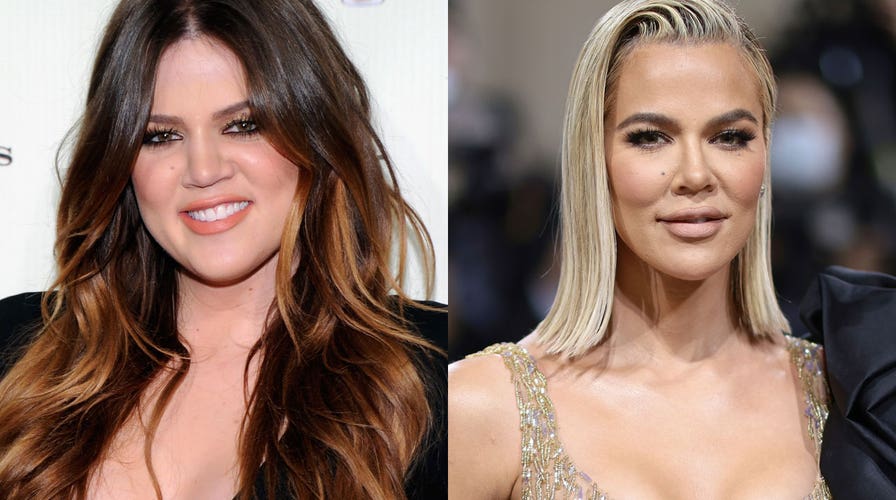A Deep Dive Into the Usual Reason for Looking For Aesthetic Surgical Treatment: Unloading the Wish for Modification and Self-Improvement

Social Pressures and Beauty Requirements
Regularly, societal stress and prevailing beauty criteria play a substantial function in individuals' decisions to pursue plastic surgery (liposuction bellevue). In contemporary society, visual representation heavily influences personal assumptions of appearance, often perpetuated by media, celebrity recommendations, and social systems. These channels regularly advertise idyllic variations of elegance, leading people to internalize these standards and examine their self-regard versus them

In addition, these stress are not restricted to particular demographics; they affect individuals throughout various ages, genders, and backgrounds, highlighting the prevalent nature of beauty requirements. This extensive impact elevates essential questions about the ethics of cosmetic surgical treatment and the implications of social requirements on individual choices. Ultimately, understanding these stress is critical for fostering a much more inclusive definition of elegance that celebrates diversity.
Personal Experiences and Transformative Stories
Several individuals that go through cosmetic surgical treatment report transformative experiences that expand past simple physical adjustments. For many, these treatments work as a stimulant for boosted self-confidence and a restored feeling of identification. People often describe feeling freed from long-standing instabilities, resulting in enhanced confidence in both individual and professional realms.
Take, for instance, the story of a girl who undertook boob job after years of feeling awkward regarding her look. Post-surgery, she reported not only a newly found comfort in her body yet also a considerable renovation in her social life and profession opportunities. Likewise, a middle-aged male who selected to go through a facelift shared exactly how the procedure rejuvenated his expectation on life, triggering him to go after brand-new interests and connections.

Psychological Elements Behind Plastic Surgery
Numerous mental elements add to the choice to go through cosmetic surgical procedure, reflecting deeper emotional and mental wellness considerations. Individuals commonly pursue surgical enhancements as a way to resolve sensations of insufficiency, reduced self-esteem, or discontentment with their appearance. These mental inspirations can go to this web-site be rooted in previous experiences, social comparisons, or personal aspirations.
Body image distortion is a common problem, where individuals view their physical qualities in an exaggeratedly adverse light. This distortion can bring about compulsive thoughts regarding viewed problems, triggering the wish for medical modification as a remedy. Additionally, the quest of excellence and social pressures can magnify these feelings, pushing individuals towards cosmetic procedures in hopes of achieving an idealized version of themselves.
Furthermore, the concept of self-improvement plays go to this website a critical duty. Several people check out plastic surgery as a path to improve their lifestyle, believing that enhanced look will certainly bring about increased social acceptance, better partnerships, or enhanced career opportunities. Ultimately, the mental factors behind cosmetic surgery underscore the complex interplay between individual self-perception and external impacts, disclosing the diverse nature of the desire for modification.
The Function of Media in Understanding
In today's culture, media plays an essential role in shaping assumptions of charm and self-worth. Via different platforms-- social networks, television, and advertising-- idyllic standards of elegance are often shared, influencing private aspirations and self-image. These representations often emphasize narrow definitions of appearance, predominantly including youthful, slim, and electronically improved images, which can develop unrealistic criteria for individuals making every effort to conform.
The effect of media is more worsened by the pervasive nature of social media sites, where users are pounded with curated web content that highlights cosmetic enhancements, recommending a culture of contrast. This consistent exposure can result in sensations of inadequacy among visitors, motivating them to consider cosmetic surgical procedure as a way of achieving the regarded perfect. Study suggests that people who involve with these media depictions are much more most likely to reveal dissatisfaction with their appearance, enhancing the desire for surgical interventions.
Additionally, the normalization of cosmetic surgical treatment in media stories can desensitize audiences, framing such procedures as commonplace and even essential for social acceptance. Hence, the media's representation of beauty not just influences specific selections regarding cosmetic surgical treatment however likewise adds to a broader social discussion concerning self-regard and identification.
Future fads and honest factors to consider
Amidst the growing popularity of plastic surgery, ethical considerations bordering the technique have actually come to be increasingly prominent. As the demand for treatments increases, so also do problems pertaining to educated authorization, the mental motivations of individuals, and the possibility for exploitation by specialists. It is vital for visit site professionals to guarantee that clients completely comprehend the advantages and threats, in addition to the implications of their selections, to foster an accountable strategy to aesthetic improvements.
Additionally, the influence of social media sites and appeal standards questions concerning the effect on mental health and wellness, particularly among vulnerable populaces. As understanding of body image concerns grows, moral method demands a mindful assessment of the inspirations behind surgical treatments. Specialists should stabilize patient needs with ethical obligation, guaranteeing that choices are rooted in genuine self-improvement instead than social stress.
Seeking to the future, fads may move in the direction of non-invasive and technically progressed procedures, stressing client safety and fulfillment. In addition, the consolidation of psychological evaluations might assist resolve underlying issues prior to medical treatment. The cosmetic surgery field should adjust to these moral obstacles while promoting a culture of transparency and self-acceptance, eventually prioritizing the wellness of individuals.
Verdict
Finally, the search of plastic surgery is influenced by a confluence of societal stress, individual experiences, and emotional variables. The need for placement with dominating appeal criteria, coupled with the potential for transformative end results, emphasizes the intricate inspirations driving people toward these treatments. In addition, the function of media in shaping understandings of beauty can not be downplayed. As ethical factors to consider advance, future fads in cosmetic surgery will likely reflect recurring social dialogues surrounding self-improvement and specific identification.
Often, societal stress and prevailing appeal requirements play a considerable function in individuals' decisions to seek cosmetic surgical procedure. liposuction bellevue. Inevitably, these transformative stories highlight the complex reasons individuals look for cosmetic surgical treatment, intertwining individual growth with the search of aesthetic enhancement
Several individuals watch cosmetic surgical treatment as a path to enhance their top quality of life, believing that boosted appearance will lead to raised social acceptance, much better relationships, or enhanced career possibilities. Ultimately, the mental factors behind cosmetic surgery highlight the intricate interplay between specific self-perception and outside influences, exposing the complex nature of the desire for modification.
As moral factors to consider progress, future fads in cosmetic surgical treatment will likely reflect ongoing societal dialogues bordering self-improvement and private identification. liposuction bellevue.